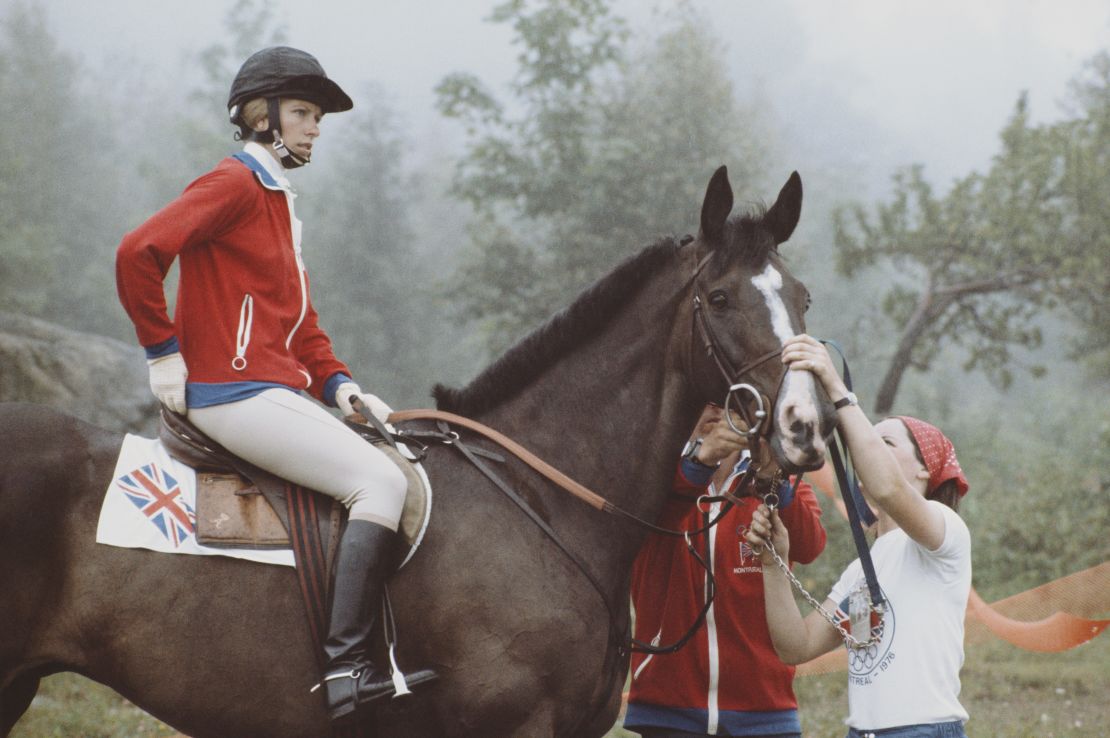Editor’s Note: This is a version of CNN’s Royal News, a weekly dispatch bringing you the inside track on Britain’s royal family. Sign up here.
Arriving in a horse-drawn open carriage, King Charles III and Queen Camilla attended Royal Ascot in style this week.
Dressed in their finest frocks and wearing hats of all different shades, onlookers at the opening day of the five-day racing festival in Berkshire, southeast England, on Tuesday applauded as the royals passed by. Camilla wore a bold cobalt-blue dress with a wide-brimmed matching hat, while Charles sported a formal gray suit and top hat.
In this year’s official program, the royal couple made a touching nod to the late Queen’s passion for horses, while wishing this year’s participants the best of luck in the upcoming races.
“It gave us immense pleasure and joy to witness Desert Hero’s victory in the King George V Stakes last year, particularly as he was bred by Her late Majesty,” the couple wrote in the program.
“We wish all the participants this week the very best of luck in seeking that unique thrill of a Royal Ascot winner.”
Last year’s Royal Ascot saw an unlikely win for Charles, with his horse, Desert Hero, overcoming odds of 18 to 1 to land first place. Francis Brooke, Charles’ representative at Ascot, said the win was the “highlight of the week,” with Hero winning in “thrilling style.”
Brooke added that this year’s event will have a race named after the King. “We are delighted to have renamed our premier five furlong sprint in honour of His Majesty The King,” he said in a statement.
Another of Charles’ horses, also inherited from the late Queen, raced in the Betfred Oaks at Epsom Downs last month, finishing in 11th place out of 12, according to the Jockey Club.
This love of horses has bound together multiple generations of the royal family, from the time of Queen Anne in the 18th century, when Royal Ascot was created, to the present day. Camilla even reportedly met Charles at a polo match in Windsor in 1970.

A long royal pedigree
Royal Ascot dates to 1711, when Queen Anne established the first iteration of the quintessentially British spectacle, according to the event’s organizers.
This first event, held on August 11 that year, consisted of three separate heats, each four miles long, which Anne said would allow the “horses to gallop at full stretch.”
It was a test of extreme stamina, according to Royal Ascot, with each heat roughly the same length as the modern-day Grand National.
Nearly 100 years later, in 1807, Royal Ascot’s oldest surviving race, known as the Gold Cup, was added to the mix.
It was during the 2013 Gold Cup that the late Queen’s face famously lit up with sheer joy as she watched her horse, Estimate, cross the finishing line in first place. “We have all the trophies. I have actually managed to win the Gold Cup, which is unusual,” said Elizabeth, then 87 years old.

Her passion for racing flowered when she was a teenager.
“When she was young, she had ponies. At the age of, I think, of 16, her father took her to the racing stable for the first time,” John Warren, the late Queen’s bloodstock adviser, told CNN in 2014.
“There was a tremendously good filly (young female horse) at that time, and she went into the stable and she went and patted this filly, and she tells the story that she didn’t want to wash her hands for the rest of the day for the touching of the horse.”
Over the years, her keen interest in the sport resulted in an impressive 24 wins at Royal Ascot and a significant return in prize money from her more than 400 horse racing victories in total.
And the late monarch wasn’t alone in her passion. Princess Anne, her only daughter, has taken after her as a keen rider and was even part of the British equestrian team at the 1976 Montreal Olympic Games.

And given Charles’ good fortune at last year’s Royal Ascot, it seems Queen Elizabeth’s lucky streak has passed down to her son.
“The King and Queen have retained a healthy interest in the sport,” a spokesperson for the Jockey Club told CNN Wednesday.
“Becoming joint patrons of The Jockey Club and their subsequent visits to both Epsom Downs and Royal Ascot demonstrates their ongoing commitment to the sport of horse racing.”
Aside from racing, horses still have a practical role to play for the royal family.
Since the reign of Queen Victoria in the 19th century, a particular type of horse called a Windsor Grey – known for its stamina and steady temperament – has been the favorite provider of horsepower for the royal family’s carriages.
Named because they used to be kept at stables in Windsor, Windsor Greys have been used in public ceremonial events like royal weddings and coronations to transport members of the clan and their guests.
Over the years, race horses, carriage horses and ponies alike have been ever-present in the lives of the royal family, and despite the change in monarch, their position seems assured for many more years to come.
CNN’s Max Foster, Lauren Said-Moorhouse, Ben Church and Aly Vance contributed to this report.






